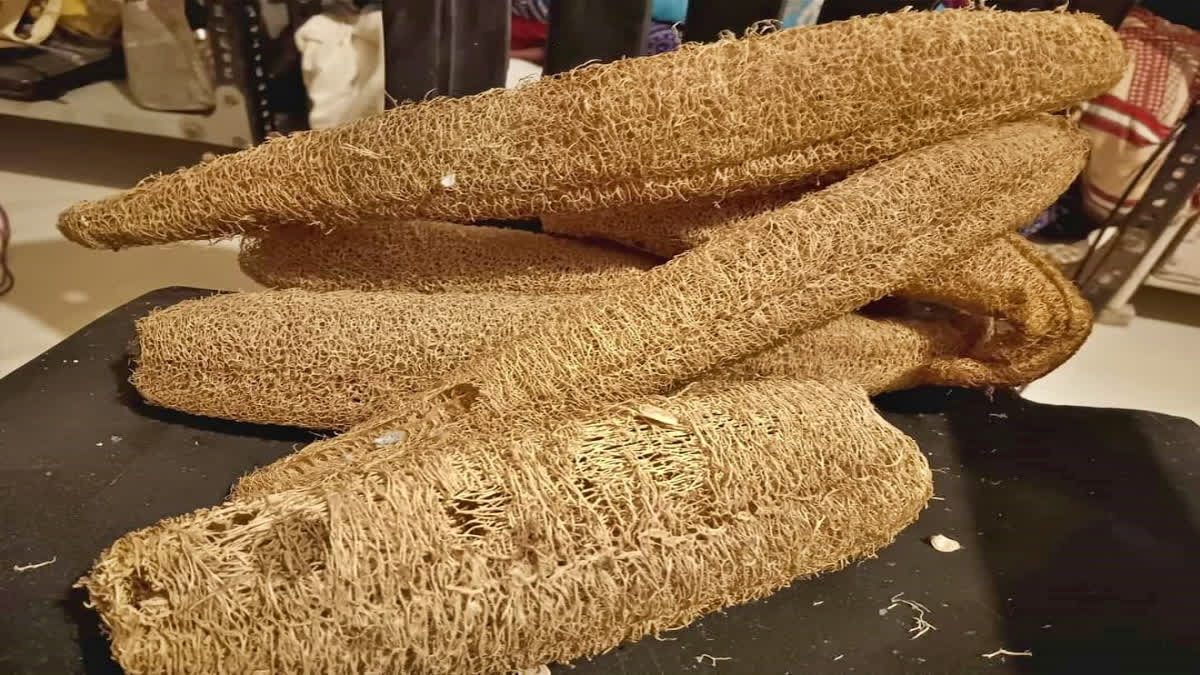Chhindwara (Madhya Pradesh): In the rustic landscapes of Chhindwara, a unique and natural scrub has been gaining widespread attention in the online market, with its demand even extending to foreign countries. The key ingredient in this burgeoning sensation is the humble gourd, commonly known as Gilki and ridge gourd. This organic scrub, inspired by the traditional loofah of tribal communities, is transforming into a sought-after product in the world of skincare and self-care, redefining the way we think about scrubbing.
This indigenous loofah, sometimes referred to as "Kuchda" in the rural areas of Madhya Pradesh, is harvested from the fruits of Gilki and ridge gourd. It is employed not only for cleaning utensils but also as a hand and foot scrub, making it an incredibly versatile product. In contemporary marketing, this natural loofah has found its way into the online market, creating a buzz both locally and internationally.
The process of making this natural loofah begins during the ripening of ridge gourd fruits when they are allowed to mature to produce seeds. In rural farming households or villages, when Gilki, Nenua, or ridge gourd is not harvested promptly, it becomes tough and unsuitable for culinary use. Gilki and ridge gourd, with their characteristic vines, typically grow on thatched structures, field ridges, or within fields supported by wooden floodgates. Consequently, the ridge gourd can often be concealed within the dense foliage, making it challenging to locate while harvesting. These unharvested gourds are left to ripen on the vines so that their seeds can be collected, leading to the creation of this remarkable natural scrubber.
Dr. Vikas Sharma, a prominent vegetation researcher, and tribal expert, envisions the untapped potential of this natural resource. He believes that with the right initiatives from the agriculture department and local administration, it could become a valuable source of income for the rural tribal communities.
The rise of this natural scrub from obscurity to international fame underscores the appeal of organic, eco-friendly, and sustainable products in today's market. As consumers worldwide become more conscious of the environmental impact of their choices, the demand for such naturally sourced products is expected to grow further. Moreover, this unique endeavour not only offers economic opportunities but also supports the preservation of indigenous practices and empowers tribal communities in rural India.
Also read: Kerala Seed Farm becomes country's first carbon-neutral farm
Also read: Madhya Pradesh man strikes gold by exporting seeds of wild monsoon plant to China, Vietnam



